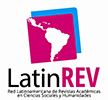PowerPoint: resource present in remote and in-person classrooms as a tool for teaching the Portuguese language
ARK:
https://n2t.net/ark:/35231/pergaminho.v3n1.52Keywords:
ICT, PowerPoint, Portuguese language, Teaching-LearningAbstract
For this article, we sought to understand how and to what extent the process of using power point influences the methodological teaching of teachers in relation to face-to-face and remote teaching of the Portuguese language. It used the proposition of questions applied through questionnaires with Portuguese language teachers in basic education, working in public and private education in the city of Itapecuru Mirim/MA. With the aim of ratifying the introduction of Information and Communication Technologies (ICTs) to language teaching, through the presence of these tools in students' daily lives. Since these technologies should not be ignored in the teaching and learning process, the present study sought to work on this issue from the teachers' point of view. The questionnaires were produced and applied from a qualitative perspective, enabling professionals to express their individual perceptions on the topic, aiming, among other aspects, to know the frequency of use of this tool in classes, the criteria for use, materials produced and even the difficulties faced when using these programs. Based on the concepts of authors such as David (2020), Levy (1999) and Cobucci (2022), it is an article that emphatically exposes ICTs in the school environment, highlighting how these new technologies act in the dissemination of the main axes of language.
Downloads
References
BRASIL. Ministério da Educação. Base Nacional Comum Curricular. Brasília, 2018.
COBUCCI, Paula. Novas práticas de ensino de língua portuguesa em ambientes virtuais multifacetados de aprendizagem, Linguagem em (Dis)curso – LemD, Tubarão, SC, v. 22, n. 1, p. 105-124, jan./abr. 2022.
DAVID, Ricardo Santos. Tecnologias digitais de informação e comunicação no ensino da língua portuguesa, Revista de Letras JUÇARA, Caxias – Maranhão, v. 04, n. 02, p.35 - 53, dez. 2020.
LÉVY, P. Cibercultura. São Paulo: Editora 34, 1999. Disponível em: https://www.giulianobici.com/. Acesso em: 27 nov. 2022.
PAULILO, Maria Angela Silveira. A pesquisa qualitativa e a história de vida. In: Serviçosocial em revista / publicação do Departamento de Serviço Social, Centro de Estudos Sociais Aplicados, Universidade Estadual de Londrina. Vol. 1, n. 1, Jul./Dez. 1998.
PIMENTEL, Lisandra Amparo Ribeiro et al. In: SILVA, Emmanuelle Ferreira Requião; OLIVEIRA, Verônica da Cruz (Organizadoras. Multiletramentos para uma prática inovadora na escola contemporânea. Ed. Quirinópolis, GO: Editora IGM, 2021.
REZENDE, Flavia; COLA, Cláudio dos Santos Dias. Hipermídia na educação: Flexibilidade cognitiva, interdisciplinaridade e complexidade, Rev. Ensaio, Belo Horizonte, v.06, n.02, p.94-104, jul-dez, 2004.
SOUSA, Angélica Silva; OLIVEIRA, Guilherme Saramago; ALVES, Laís Hilário. A pesquisa bibliográfica: princípios e fundamentos, Cadernos da Fucamp, v.20, n.43, p.64-83/2021.
SOUSA, Socorro de Maria Rodrigues et al. Estratégias tecnológicas utilizadas no ensino durante a pandemia. Research, Society and Development, v. 11, n. 1, p.1-10, 04/01/2022.
Downloads
Published
How to Cite
Issue
Section
License
Copyright (c) 2024 Antonia Raiane de Oliveira Silva

This work is licensed under a Creative Commons Attribution-NonCommercial 4.0 International License.


